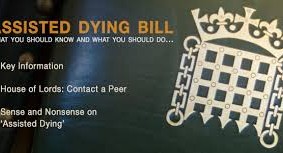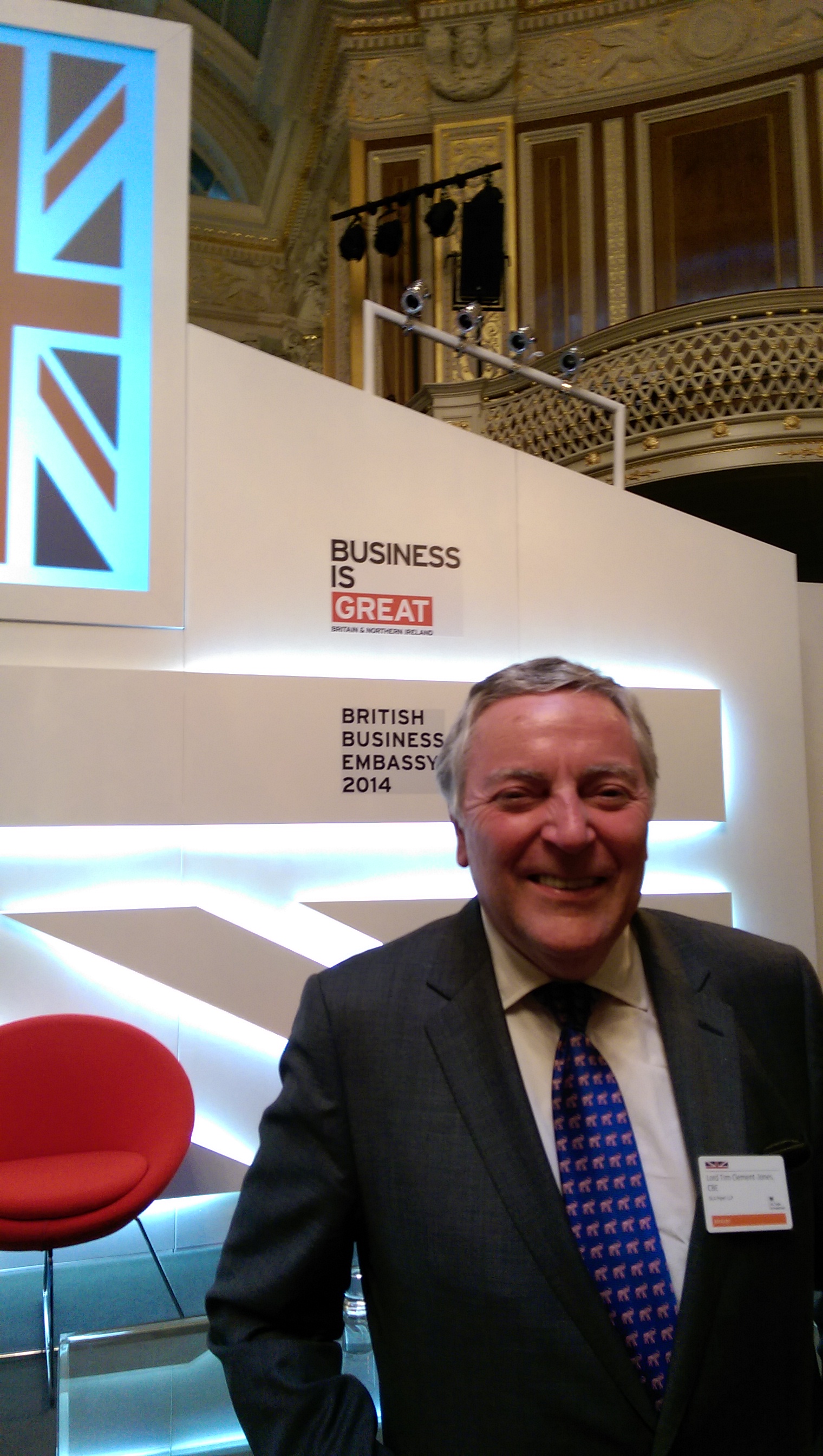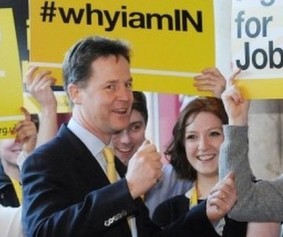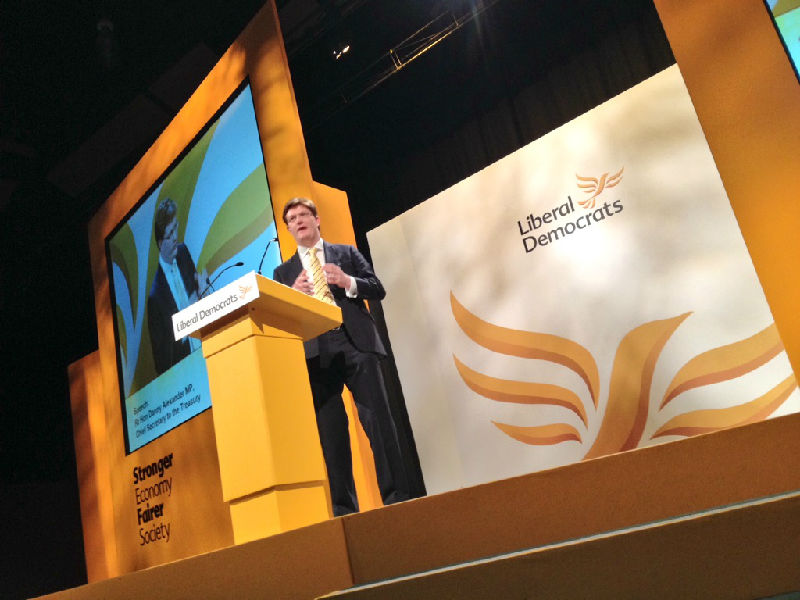I'm supporting the We love Vauxhall Bus Station Campaign!
See the Facebook Group here
https://www.facebook.com/pages/We-love-Vauxhall-Bus-Station/207071692827334?ref=stream
And the Petition site:
As the campaigners say: "Vauxhall Bus Station, London's second busiest bus station, is a vital resource, an amenity allowing people from all over London to interchange with bus/train and Tube quickly, safely, under cover and with minimum exposure to the traffic pollution of the Vauxhall Gyratory. It is Lambeth Council’s ambition to demolish the bus station and disperse bus stops to roadside positions around Vauxhall Cross"
The interchange was only built only 10 years ago at a cost of £4 million pounds. It is also a fine piece of design by Arup . As they say on their website "It has stimulated the growth of local businesses, spurred the upgrade of other local transport, encouraged 40% more people to use the area and dramatically improved the day-to-day lives of the thousands of individuals who pass through the station every day."
Let's keep it!
Government Rides to Rescue of Levy
With excellent timing in the Year of the Horse and just before the opening of the Cheltenham Festival, following pressure mainly from Coalition parties (Viscount Astor, Lord Mancroft, myself and others) and the Crossbenches (Viscount Falkland) the Government announced on Report Stage in the House of Lords that they would be inserting a new clause in the Gambling (Licensing and Advertising) Bill at Third Reading to enable the Horserace Betting Levy to be extended to include offshore bookmakers who do not currently pay the Levy. This has now taken place.
With the value of the Levy having fallen drastically in recent years (from £106m in 2003/4 to £66.7 m in 2012/13) this is very good news for horse racing which is this country's second most popular sport, with 5.6 attendees at events in 2012, and which makes a substantial contribution to the UK economy.
Why I am against the Assisted Dying Bill
Sadly I am unable to be present for and take part in the Debate on the Second Reading of the Assisted Dying Bill this Friday and I have been unable to reply to the huge volume of correspondence but I want to put my views on record beforehand
Some colleagues have changed their minds on the subject since Lord Joffe's Bill came to parliament a few years ago. I have not.
The Bill is designed allow doctors to give lethal drugs to adults thought to be mentally competent and diagnosed with less than six months to live.
There are many who view the safeguards in the Bill as inadequate and the systems to tackle undue influence inadequate . Mine are more fundamental-the inability of doctors and modern medicine to be at all sure about prognosis and life expectancy.
My late wife Dr Vicky Clement-Jones for example was given 3 months to live with late stage Ovarian Cancer but survived for 5 years and in that time established Cancer Bacup's Cancer Information Service now run by Macmillan Cancer Support.
This is an extract from Dr Ruth Johnston to Lord Carey, formerly Archbishop of Canterbury which sums up my thoughts entirely:
I write as a doctor working in oncology, with relation to the article you authored in the 'Daily Mail' on 12th July 2014.
I work primarily with patients who have lung cancer. The majority of these patients have Stage IV (metastatic) disease, which is inoperable and incurable, and in whom the median survival is generally of the order of 6 months.
I offer my patients the opportunity to discuss prognosis, and if they want to know this information, I explain that median survival is the time when 50% of patients (with their particular disease type and stage) are alive and 50% are dead. I always explain that predicting survival times is difficult and that some patients do much better than their doctors initially expect. I still review several patients who were originally considered by their oncologist to have a prognosis of less that one year, yet who are alive between 3-5 years after the initial diagnosis.
I write this to explain that determining prognosis, even in a quite predictable disease such as cancer where there are survival statistics available, is difficult, non-exact, and prone to error even among the most experienced practitioners. It is important to recognise that there can be a considerable range of survival times and that long term survivors are known in patients assessed by an oncologist and considered to have 'terminal cancer'.
The ability to determine prognosis in other diseases, such as progressive neurological diseases, chronic heart, lung or kidney disease etc. is much more difficult, and prediction of survival times is prone to even more significant error.
In a Bill which allows there certifying doctors no requirement to know the patient in question, I think it is unlikely that a doctor who has not met the patient can provide accurate information on prognosis for differing disease types and stages.
I have reflected on the effect implementation of an Assisted Euthanasia Bill would have on my practice: while advising a patient with Stage 4 lung cancer of their diagnosis and treatment options and providing prognostic information, my patient and I would be aware that the an assisted death would be a possible 'option' given their short survival times (i.e. as per the proposed Bill 'reasonably expected' to die within six months). I think that an 'assisted dying' option would negatively impact my relationship with my patient, who might fear that I and the other health professionals involved in their care might not offer the full options of treatment available, or that by discussing survival times doctors might have the motive of opening up the patient's consideration of assisted dying.
Symptoms of fatigue, depression and, not infrequently, disability, are often seen in patients with advanced malignancy. Assisted dying is conceivably going to be offered to patients who have the potential for reversibility of symptoms and alleviation of distress with the help of (among others) oncology, palliative medicine and general practitioner services. I am concerned that my cancer patients who often have understandable anxiety and depression at their diagnosis, may fear being a burden to their family and the health service, and choose an assisted death. A painful death or terminal suffering is not common in cancer patients: raising the fear of the death process may cause my lung cancer patients to feel they should end life early, rather than risk a difficult death.
To me the Bill is completely perverse to a medical practitioner. I trained and practice in medicine to help patients, to preserve life and to 'first do no wrong'. Killing is wrong, and it is wrong to ask a doctor to prescribe a deliberately lethal dose of medicine, while also anticipating the same doctor will care and cure.
Speech on startups gets a response!
The day after my creative industries speech I was delighted to receive the following email from Care Home Owner David Crabtree. As I said to him "You inspire me back. It's really good to know someone is listening! Please do persevere with your project"
Dear Lord Clement - Jones
By chance as I switched on my TV this morning at 6 a.m as you were delivering a speech and outlining the many resources for funding and encouragement of digital and other media start ups.
Your speech was inspiring, very informative, and extremely well delivered as I would normally have skipped the TV channel.
I have been nursing for over forty years and whilst many were spent in the field of addiction working with alcohol and drug dependents and their families, I started out and now finish my career working with people and their families who suffer from dementia.
Many are under 60 and their dementia, Korsakoffs has been brought about primarily by the addiction to alcohol.
It is in doing this work, I have been trying to source a digital watch which will alert the family member to someone leaving the home, combined with a gps tracking system which will locate the watch and it's wearer should they go beyond a pre set parameter.
Many years ago I was a nurse in a ward where someone wondered off and despite police helicopters and tracker dogs they were found dead some three days later. The police resources we spend looking for people with dementia is very costly.
I have now sourced one in the UK but the costs may be too prohibitive at the moment for general use, which is why your speech was so informative and timely.
In working as a counsellor with addiction and families one never knows if the information you give out will be of any use, as it can take many years and attempts to get clean, as I know only too well from person experience, so the saying in AA is that a flower never sees the seed.
Today your speech has inspired me to see if the technology and start up funding for the watch is available in the UK, and I wanted to both acknowledge your work and thank you.
My best wishes to you and your family , and should you come North meeting for coffee would be a great pleasure for me.
Many thanks again for all the work you do on behalf of so many of us.
David Crabtree R.M.N
www.crabtreecarehomes.co.uk<http://www.crabtreecarehomes.co.uk>
http://m.youtube.com/watch?v=Q4kqLeMoSi8&feature=plc
Lord C-J Debates Rule of Law and the global role of English Law and Lawyers
In a recent debate on "the contribution of the legal systems of this country to the international standing of the United Kingdom and the observance of the rule of law in this country and abroad" I described the important role of the legal profession here and abroad..
http://www.publications.parliament.uk/pa/ld201415/ldhansrd/text/140710-0002.htm#14071063000808
As Lord Hodgson, said earlier in the debate, the rule of law in the English legal system is a major source of British influence abroad, as the recent report by the Select Committee on soft power of this House made very clear.
I had the great pleasure recently of participating with the noble and learned Lord, Lord Woolf, in a conference on the rule of law in Turkey, which was a very timely reminder in that country of the essential values inherent in the concept of rule of law, and I thank him for initiating this superb debate today. Many noble Lords have mentioned the fact that next year we are celebrating the 800th anniversary of Magna Carta through the Global Law Summit and other events. It is particularly important that we hand down this tradition to each new generation and that they are made aware of how precious it is.
The rule of law is not only a philosophical ideal and a bastion of individual rights. Our legal framework is critical to economic development, to the creation of jobs and to a successful market economy. A key factor is the integrity and independence of the judiciary and, as my noble friend Lord Marks said, London has become a world leader in dispute resolution. English legal practitioners are another reason for using English law. We have a long and well respected tradition of excellent legal services based on trust and performance. Huge effort over the past few years is beginning to result in a much more diverse profession, with commitment to the PRIME initiative by an alliance of law firms and legal departments across the United Kingdom to broaden access to the legal profession. Pro bono ethos and practice is much more embedded, too, within the legal profession. The noble Lord, Lord Livingston of Parkhead, in his first contribution to this House last December, confirmed his view that the legal services sector is one of the most important sectors for the UK. In fact, it employs almost 350,000 people. The noble Lord, Lord Pannick, referred to the fact that the rule of law is now one of Britain’s great exports; exports of legal services totalled more than £4 billion last year.
Our law and law firms are becoming ever more international to meet the needs of businesses. Law firms such as my own have responded by becoming international in their own outlook, establishing a global presence. There are close links between legal education, our laws and the legal sector. We attract students from all over the world. This needs to be nurtured. The coming decade promises to see increased competition as other cities such as Paris, New York and Hong Kong aspire to compete with London as a world leader in legal services.
We also face legislative threats such as the common European sales law being proposed by the European Commission as an EU civil law alternative to English common law. Protectionist regulations in growth markets such as India and a number of other emerging markets are, however, a major stumbling block, inhibiting the export of UK legal services and, indeed, opportunities for their own lawyers. The profession and the Government have, rightly, made persuading emerging markets to tear down their barriers to entry a key priority. Staring in 2011, the Ministry of Justice’s Plan for Growth set out the importance of English law and English legal services to the UK economy, and the need to open up overseas markets.
Our position in Europe is vital in achieving this goal. Another benefit from the EU is the freedom of establishment under the establishment directive. No wonder that, according to a recent CBI survey, two-thirds of law firms think that leaving the EU will have serious negative consequences. The challenges we face to ensure that the UK remains the world leader in the rule of law, in our standards of justice, in the provision of legal services and in the opportunities that exist in international jurisdictions are significant. However, we can meet them if we heed today’s warnings. I hope that we will be able to fulfil, as Ken Clarke said when he was Lord Chancellor, the UK ambition of becoming lawyer and adviser to the world.
Lord C-J on Startups: Financing getting better but major skills gaps
In many respects the Queen’s Speech is to be welcomed, precisely for the fact that it does not contain a huge amount of new legislation. None the less, I welcome the carryover of the Consumer Rights Bill and the Deregulation Bill. Curiously, I note for the aspiring statesmen among us that it will, among other things, make statues easier to erect. I do not know whether your Lordships noticed that.
Nick Clegg: We're IN
Deputy Prime Minister Nick Clegg kicks off the European Election Campaign and the General Election Campaign too!
http://www.bbc.co.uk/news/uk-politics-26504083
Danny Tells the Lib Dems' Record on the Economy
Excellent speech from Danny Alexander the Chief secretary at the Lib Dem's Spring Conference in York. A Stronger Economy and a Fairer Society indeed.
http://www.libdems.org.uk/danny_alexander_s_speech_to_spring_conference
Happy New Year of the Horse!
The 31st January this year marks the start of the Chinese New Year.
Gong Xi Fa Cai in Mandarin and Kung Hei Fat Choi in Cantonese to you!
The Horse is an energetic creature and apparently "the fire energies will be strong" this year. So let's make the most of it!
Lord C-J looks to the Future of IP policy
I recently gave a speech to the Inside Government Intellectual Property 2014 Conference
Here is the text.
Intellectual Property Policy:The Way Forward
In modern times Britain has become renowned in for its creative industries, in particular for pre-eminence in the world of pop and rock music, for the work of its designers and architects and for its television and film content and formats. We are now coming to the fore in fashion and computer games.
This creative output comprises one of the UK's great assets.The UK’s creative industries are now worth £71.4 billion per year to the UK economy, at least 5% of the UK Economy and 10 % of all UK exports.
Sector growth outperforms all other sectors of UK industry and it now accounts for almost two million jobs.
A crucial factor in recent growth has been the tax treatment of film production. This has been followed by high end television and animation and in April the video games relief was cleared by the EU. The new theatre production tax relief and patent box will have a major impact too.
In July we saw launch by the Creative Industries Council of Create UK, the creative industries strategy. Its aim is to double the sector’s annual exports to £31 billion by 2020.
At the launch Vince Cable announced a £16m funding package to boost skills in the creative industries. This injection of capital investment is part of the Government's strategy to support the UK's position as a world leader in the sector.
Create UK calls for a “stable legal framework that allows rights to be protected and commercialised” and says “any consideration of amendments to the IP frameworks” needs to be “thorough, objective, evidence-based and transparent”.
This however has been far from the case since the conclusion of the Report by Professor Ian Hargreaves in 2011 designed to set out how the intellectual property framework can promote innovation and economic growth in the UK economy.
The impression given by the Report was that intellectual property rights are a barrier to innovation.
Even as far back as the landmark Statute of Anne in 1710 however the benefits of copyright, particularly the rights of creators, were recognized.
Indeed the title of the Act is: “An Act for the Encouragement of Learning, by Vesting the Copies of Printed Books in the Authors or Purchasers of Copies.., etc”
As a result the provisions of the Digital Economy Act passed in the washup before the General Election of 2010, which would have given the creative industries some protection from digital piracy, remain unimplemented.
I myself in trying to make sure that there were greater powers to block infringing websites found myself depicted as an internet villain!
Luckily and thanks to the industry the Newzbin2 case brought by the MPA and the UK Pirate Bay case have established that an existing provision of the CDPA 1988 is effective in taking down these sites.
Following the Hargreaves Report we have had the Enterprise and Regulatory Reform Act which set out the legal basis for introduction of new copyright exceptions, Extended Collective Licencing and the treatment of Orphan Works.
It is hard to see, despite the elaborate process undertaken to introduce Exceptions, what major positive impact any of these with the possible exception of Parody, will have.
Indeed in a number of cases they seem to militate against the commercial licensing solutions being made available by rights owners.
Extended collective licensing and orphan works provisions have a narrow UK application and similarly are unlikely to make a major impact.
One area where there have been positive development is in the field of designs.
The ERR Act ensured that works of Artistic design would be protected (think chairs!) with the repeal of s52 now under consultation and the Intellectual Property Act introduced a criminal penalty for infringement of registered designs.
Admittedly some of us felt this should go further in the light of the fact that protection for 2D is so much better than for 3D.
Moreover in the end the provisions of the Bill were watered down so the test of whether a design was “substantially” copied was replaced by “with features which differ only in immaterial detail” for the purposes of criminal prosecution.
The ERRA also laid the ground for Collecting Societies Codes of Practice which lay down minimum standards of behaviour. Given the power of the collecting organizations this was welcome.
One major and welcome fruit of the Report is however the Copyright Hub which made a bright start thanks to Richard Hooper and Dr Ros Lynch. Compared with nearly all the other reforms the voluntary solution of the Copyright Hub is highly likely to have a major impact combined with international application.
The Hub has received £150k in goverment funding. According to its new director Dominic Young it is changing from “signposting tool” into an “intelligent router” and it will make a major difference in taking down the barriers to effective copyright licensing.
But it will be shortly totally reliant on private sector business funding and I hope the industry will make sure that it goes on to be a great success with the necessary resources.
If it does, it has the potential to be a Global Hub for copyright licensing. London and the UK could be at the centre of a hugely significant and powerful means of ensuring that creators receive the fruits of their endeavours worldwide.
We are also making strides in music licensing through the Global Repertoire Database RD which has its Operations HQ in London
Throughout the reform process the creative industries sector have been concerned by the potential negative impact the reforms could have, with the potential to deter investment, risk jeopardising market-led developments and weaken performer/creators ability to benefit financially from their work.
Changes to IP law should be adopted only in response to a well defined public policy objective and market failure. They should be underpinned by robust Impact Assessments. In fact the quality of these has been poor.
Reform of copyright should be handled sensitively with the value of the creative industries, and any negative impact caused by changes to the law, firmly in mind and this has clearly not been the case.
Furthermore investment in the UK's creative industries can only really make a difference if the industry's intellectual property rights, particularly relating to the protection of their online materials, are properly enforced.
The industry has changed dramatically in the wake of the digital revolution. That there is a major issue regarding online intellectual property theft, in the form of illegal downloads accessed via pirate websites, is beyond dispute.
Communications watchdog Ofcom revealed last year that a staggering 1.5 billion files were illegally downloaded in 2012.
The MPAA in their report “Understanding the Role of Search in Online Piracy” assess the value lost through of piracy in the UK at £400m pa for music and film alone.
Indeed, the issue of intellectual property theft goes beyond the creative industries and impacts financial, professional and support services - industries that collectively form the backbone of the UK economy and the 'knowledge-based' economy that the UK has long relied upon for success.
The Chancellor George Osborne has recently spoken about promoting Britain's financial technology industry - or FinTech - as a global pioneer in alternative funding vehicles and digital currencies, such as Bitcoin.
However, the UK cannot hope to become a leader in this field without rigorous IP protection and enforcement.
The post Hargreaves reforms are not designed to prevent online piracy.
Advertising, often by well known brands on pirate websites, is propping up the pirates and encouraging them to continue in their IP theft activities.
The Police Intellectual Property Crime Unit (PIPCU), a specialist IP crime unit within the City of London Police, has been engaged in activities designed to disrupt the flow of money from advertisements to those that run copyright infringing websites.
The Follow the Money initiative led by Mike Weatherley MP, the former intellectual property adviser to the Prime Minister which is designed to get voluntary agreement from the advertisers and credit card companies not to advertise on these sites is a significant and welcome development.
The fact remains though that IP piracy represents an existential threat to the UK creative industries and the Government needs to put an emphasis on enforcement if it is to help the industry assert its intellectual property rights and combat the online pirates.
Major search engines have an important role to play too. They have often had an uneasy relationship with the likes of the BPI who demonstrate that illegal sites persist in coming high on search rankings despite literally millions of infringement notifications to them.
Google have recently announced moves which will downrank illegal download websites in searches.
There also needs to be a coordinated push to educate people of the importance of IP and of only downloading legitimate material via legal websites. This ordinarily means of course that people must pay for content and be strongly discouraged from illegal downloading.
The recent report Copyright Education and Awareness published this month by Mike Weatherley and rights holders such as the PRS is a greatly welcome development.
Of course he has already made a major contribution to IP education through Rock and Film the House which he founded.
We shall have to erect a statue to him when he leaves Parliament next year!
A key recommendation is about the IPO and a recommendation that there a broader IP Director General role is created along the lines of the US IP Tsar.
The Culture Media and Sport Committee rightly in its report last year raised a question mark over the Intellectual Property Office’s ability to be a strong IP champion but with recent personnel changes to that office I am much more optimistic that a major change in mindset is occurring.
The fact is however if the UK creative industries are to remain the powerhouse they currently are, people need to pay for creative content that the industries produce.
There are a number of vital aspects that need attention:
- The protection of IP must be rigorously enforced and the Government should consider either implementing the provisions of the Digital Economy Act or ensuring that robust voluntary arrangements exist with the internet service providers, so that piracy is detected and deterred.
- Digital copyright infringement sanctions need to be enhanced. We urgently need to equalise the maximum penalties for digital and physical IP infringement. I look forward to the outcome of the Government’s current review of the use of copyright infringement sanctions which is expected to report in November.
- We need to ensure too that there is a common understanding across the creative industries of what metadata needs protecting and how to do this. We need general acceptance of the Voluntary Code of Practice for Creating and Retaining Metadata in Images.
- PIPCU –the Police Intellectual Property Crime Unit-is a vital resource in combatting counterfeits and infringers. It has made a huge impact in its first year of operation. We -Government and industry- need to ensure its future funding beyond 2015.
- Then of course during the passage of the Consumer Rights Bill I have been arguing for better protection against lookalike products which whilst falling short of being counterfeit nevertheless are designed to give the cynical impression through sailing close to IP infringement that they are equivalent to the original product.
- 3D printing is already throwing up important issues. What forward thinking has been carried out by the IPO?
As it is there are major other issues coming down the track from Brussels. After an EU discussion paper in 2011 on the Single Market for Intellectual Property Rights debate will take place on matters such as user generated content, further artists resale rights and other reforms.
DG Markt and DG Connect are clearly at odds. Where does the UK stand in this debate? In fact we need a great deal more European cooperation through for instance the European Union Observatory on the Infringement of Intellectual Property Rights rather than a raft of reforms.
The recent International Summit IP Enforcement Summit hosted by BiS and the IPO in London, designed to co-ordinate strategy and action was exactly what is needed.
The international dimension of IP is important to our ability to monetize our creativity overseas. I chaired an IP roundtable at a TIF-IN Conference in Qingdao, China for the creative industries and IP protection is a fundamental issue in doing business in emerging markets.
To its credit the Government have placed IP attaches in major markets such as China and Brazil which can advise UK companies on the IP landscape.
In conclusion.In the UK we have the potential to be the recognized world leader in the development of the digital economy.
But of course now in the digital economy there is increasing convergence –indeed symbiosis- between platform and content, between the tech sector and the creative industries.
creative industries.
There is no doubt that each sector is increasingly making use of relevant skills in the other and that of course means valuing the intellectual property of each other.
In recent otherwise excellent manifestos from the TechUK –which I helped to launch-and from COADEC there is no mention of Intellectual Property.
So my parting shot to the Tech sector is, please acknowledge digital realities, you and the creative industries need each other so recognize the value of IP and the fact you have a common interest in protecting it!
Thank you










